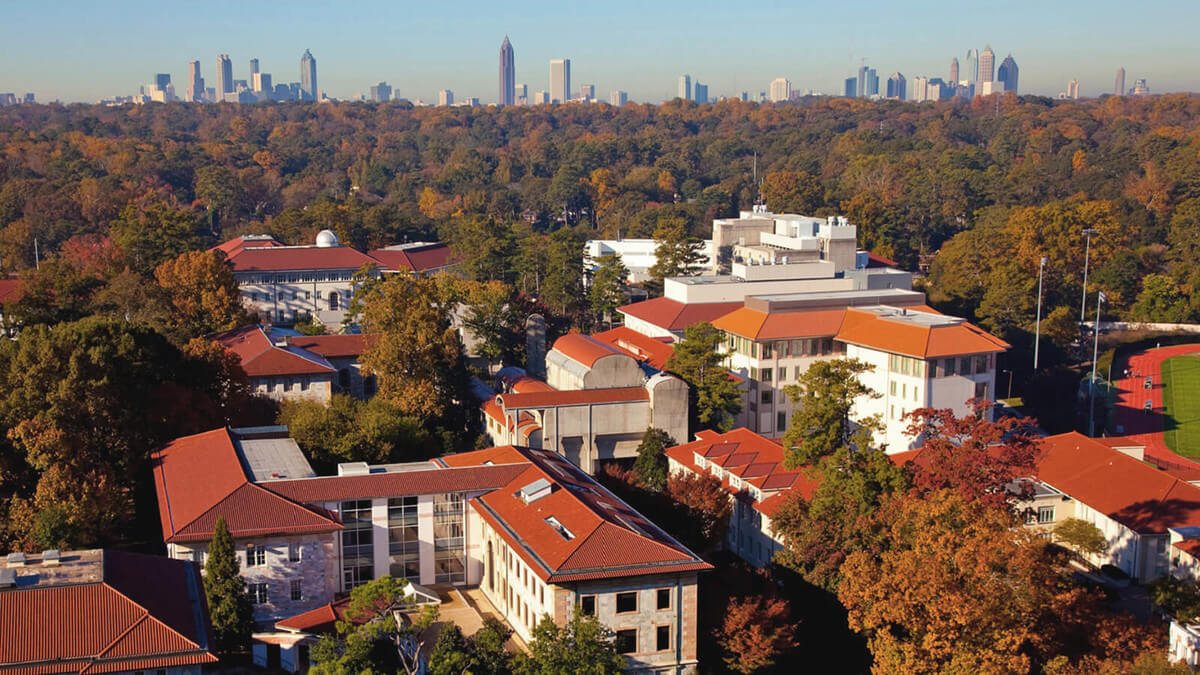


Emory University
Overview
Emory University is a liberal arts institution located in Atlanta, Georgia, with a second campus in Oxford. The 600-acre campus in the Druid Hills neighborhood is home to four undergraduate and seven graduate colleges, as well as over a dozen research centers and facilities that provide more than half of Emory undergraduates with research opportunities. The Atlanta campus offers Bachelor’s of both arts and sciences, BSNs and BBAs, while the Oxford College campus offers associate’s of arts, altogether providing more than 70 majors and 50 minors. With a campus located only three miles from downtown Atlanta, students can utilize the 2,000 internship opportunities in the city or expand their horizons through the 135 study abroad programs outside of it. Emory University applies sustainability measures around campus as well as within the classroom, including sustainability courses in 61% of its departments.
Virtual Tour
Tuition, Cost & Aid
Affordability & Cost
Discover how military service can help you pay for college
Explore Military Pathways| In-State Tuition In-state tuition is the tuition charged by institutions to those students who meet the state's or institution's residency requirements. In-district tuition is the tuition charged by the institution to those students residing in the locality in which they attend school and may be a lower rate than in-state tuition if offered by the institution. | $60,774 |
| Out-of-State Tuition Out-of-state tuition is the tuition charged by institutions to those students who do not meet the state’s or institution’s residency requirements. Out-of-district tuition is the tuition charged by the institution to those students not residing in the locality in which they attend school. | $60,774 |
Room and Board The weighted average for room and board and other expenses is generated as follows:
| $18,972 |
| Books and Supplies | $1250 |
Aid & Grants
Student Loans
Admissions
Key Admissions Stats
- Not for Profit
- United Methodist
- Coed
Need Aware
This school may consider an applicant’s financial situation when deciding admission
Admissions Requirements
Important Deadlines
| Application Type | Application Deadline | Reply Deadline |
|---|---|---|
| Early Decision Acceptance is binding so student must attend college if accepted. | November 1 | |
| Fall Regular Decision | January 1 | May 1 |
| Other | January 1 |
Admitted Student Stats
Admissions Resources
Academics
Key Academic Stats
- Online Classes
- Online Undergrad Degrees
- Summer Sessions
- Combined Institution Double Degree Programs
- Study Abroad
- Honors Program
Degrees and Majors
Majors
| A B M D | |
|---|---|
| AREA, ETHNIC, CULTURAL, GENDER, AND GROUP STUDIES | |
| BIOLOGICAL AND BIOMEDICAL SCIENCES | |
| BUSINESS, MANAGEMENT, MARKETING, AND RELATED SUPPORT SERVICES | |
| COMMUNICATION, JOURNALISM, AND RELATED PROGRAMS | |
| COMPUTER AND INFORMATION SCIENCES AND SUPPORT SERVICES | ✓ ✓ ✓ |
| EDUCATION | ✓ ✓ ✓ |
| ENGINEERING | |
| ENGLISH LANGUAGE AND LITERATURE/LETTERS | |
| FOREIGN LANGUAGES, LITERATURES, AND LINGUISTICS | ✓ ✓ ✓ |
| HEALTH PROFESSIONS AND RELATED PROGRAMS | ✓ ✓ ✓ ✓ ✓ |
| HISTORY | ✓ ✓ ✓ |
| LEGAL PROFESSIONS AND STUDIES | |
| LIBERAL ARTS AND SCIENCES, GENERAL STUDIES AND HUMANITIES | |
| MATHEMATICS AND STATISTICS | |
| MULTI/INTERDISCIPLINARY STUDIES | |
| NATURAL RESOURCES AND CONSERVATION | |
| PARKS, RECREATION, LEISURE, FITNESS, AND KINESIOLOGY | |
| PHILOSOPHY AND RELIGIOUS STUDIES | |
| PHYSICAL SCIENCES | |
| PSYCHOLOGY | |
| PUBLIC ADMINISTRATION AND SOCIAL SERVICE PROFESSIONS | |
| SOCIAL SCIENCES | |
| THEOLOGY AND RELIGIOUS VOCATIONS | |
| VISUAL AND PERFORMING ARTS |
Faculty Overview
Campus Life
Key Campus Stats
Housing
Athletics
- Baseball
- Basketball
- Cross Country
- Golf
- Soccer
- Swimming
- Tennis
- Track and Field
- Basketball
- Cross Country
- Soccer
- Softball
- Swimming
- Tennis
- Track and Field
- Volleyball
Campus Safety
After Graduation
Post Grad Stats
REVIEWS
Read What Students Are SayingSimilar Colleges
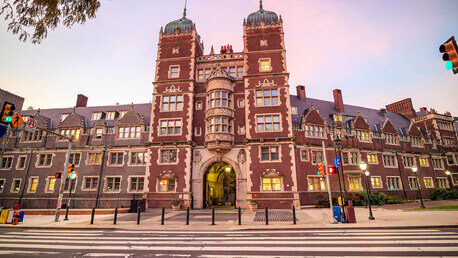 Philadelphia, PA
Philadelphia, PA Providence, RI
Providence, RI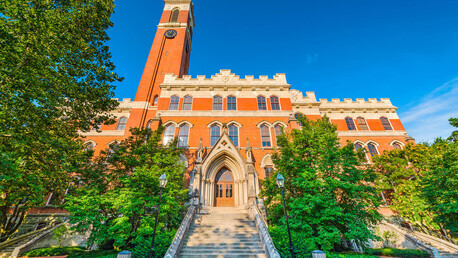 Nashville, TN
Nashville, TN Stanford, CA
Stanford, CA New Haven, CT
New Haven, CT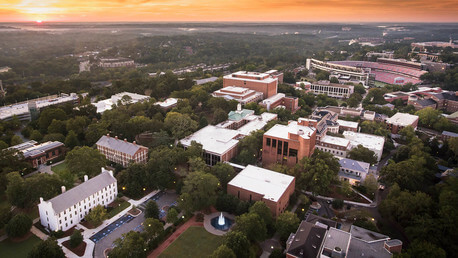 Athens, GA
Athens, GA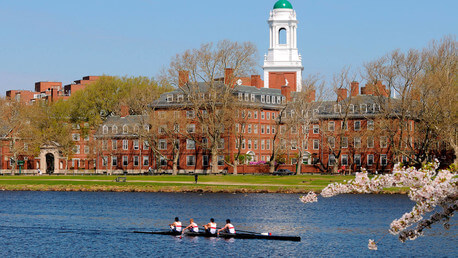 Cambridge, MA
Cambridge, MA New York, NY
New York, NY Ithaca, NY
Ithaca, NY New York, NY
New York, NY Durham, NC
Durham, NC Chapel Hill, NC
Chapel Hill, NC